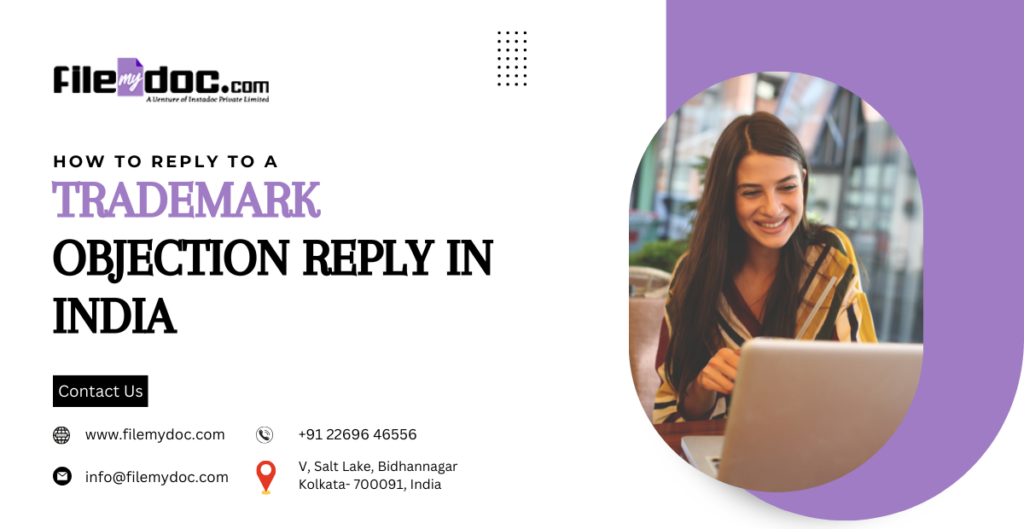Introduction
When you apply for a trademark in India, you might receive an objection. This is not a rejection but a request for more information or clarification. It’s important to respond correctly to secure your trademark. Here’s how you can do it.




Understanding Trademark Objections
Common Reasons for Objections
- Similarity to Existing Trademarks: Your trademark may look or sound too similar to an existing one.
- Descriptive or Generic Terms: If your trademark is too generic or descriptive, it might be objected to.
- Wrong Classification: Incorrectly classifying your goods or services can lead to objections.
- Incomplete Application: Missing details in your application can cause issues.
Steps to Respond to a Trademark Objection
1. Read the Objection Notice
Carefully read the notice to understand why your trademark has been objected to.
2. Gather Information
Collect all necessary documents, including your original trademark application and any evidence that can support your case.
3. Draft Your Reply
Your reply should address each point in the objection notice clearly and concisely.
Key Parts of a Reply
Statement of Facts
Start with a summary of your application and the objections raised.
Countering the Objection
Provide arguments against each objection. Explain why your trademark should be approved.
Supporting Evidence
Include documents or proof that support your arguments, such as prior use of the trademark or evidence of its distinctiveness.
Common Mistakes to Avoid
Ignoring the Objection
Do not ignore the objection notice. Respond within the given timeframe, usually one month.
Missing Deadlines
Make sure to meet all deadlines to avoid your application being abandoned.
Weak Arguments
Ensure your arguments are strong and well-supported by evidence.
Getting Professional Help
Hiring a Trademark Attorney
Consider hiring a trademark attorney to assist you. Their expertise can greatly increase your chances of a successful response.
Benefits of Legal Help
An attorney can help draft a strong reply, gather necessary evidence, and represent you if required.
What Happens After Submission?
Review by Trademark Office
The trademark office will review your reply. They might accept your response, raise further objections, or call for a hearing.
Possible Outcomes
- Acceptance: Your trademark gets approved.
- Further Objections: You may need to respond to additional concerns.
- Hearing: You might need to present your case in person.
Maintaining Your Trademark
Regular Monitoring
Keep an eye on your trademark to ensure no one else is using it without permission.
Renewing Your Trademark
Remember to renew your trademark every ten years to keep it active.
Conclusion
Responding to a trademark objection in India is crucial to protect your brand. A well-prepared reply can make all the difference. Don’t hesitate to seek professional help if needed.
FAQs
Q.1 What is the typical response time for a trademark objection in India?
You generally have one month to respond to a trademark objection.
Q.2 Can I handle a trademark objection reply on my own?
Yes, but hiring a trademark attorney can increase your chances of success.
Q.3 What are the common reasons for trademark objections in India?
Common reasons include similarity to existing trademarks, being too generic, wrong classification, and incomplete details.
Q.4 How can a trademark attorney assist in the objection process?
An attorney can provide legal advice, help draft a strong reply, and represent you in hearings if necessary.
Q.5 What happens if my objection reply is rejected?
You may need to attend a hearing or file an appeal to contest the decision.


























